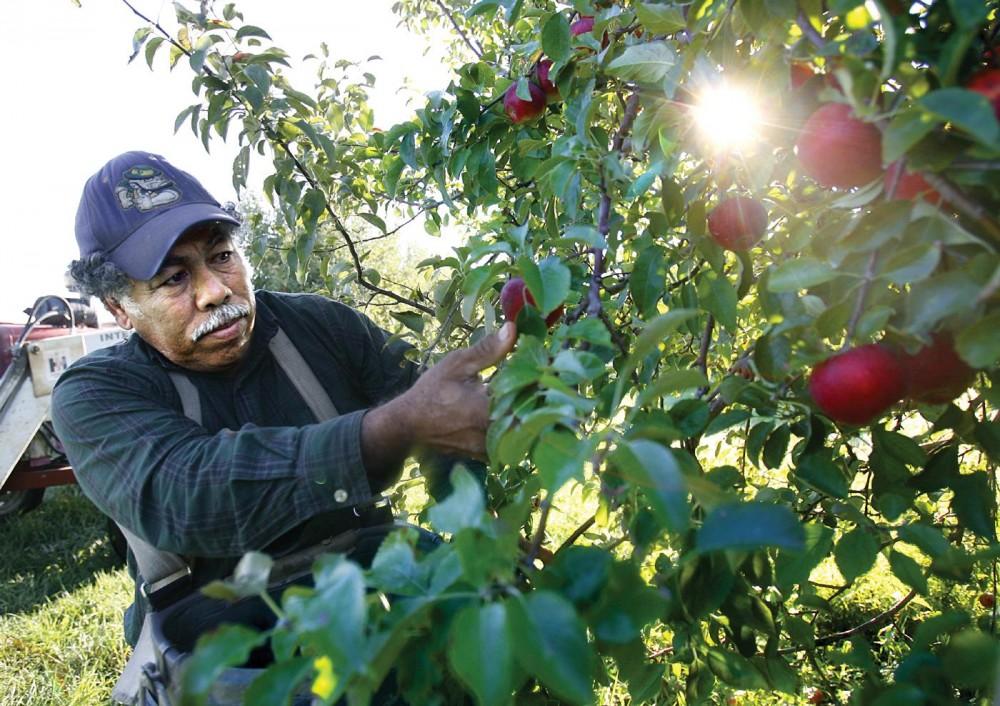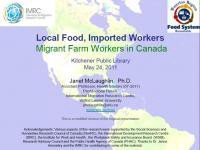2 min read
Written by Mark Xuereb
Originally posted on June 6th, 2011

Migrant agricultural workers face many health issues due to the nature of their working conditions on Ontario farms, according to Dr Janet McLaughlin of the International Migration Research Centre.
But we shouldn’t automatically blame the farmers who employ them, McLaughlin says, since many provide the best conditions they can for their employees while trying to compete in a market where virtually all of agriculture employs low-paid migrant workers.

McLaughlin was speaking at an event hosted by the Waterloo Region Food System Roundtable as part of the Roundtable’s monthly Healthy Food Systems event at the Kitchener Public Library on May 24, 2011.
McLaughlin put the phenomenon of migrant agricultural workers into a longer historical context of immigration policies in Canada, pointing out Canada’s history of bringing in labourers from other countries to do work Canadians would not perform. The Seasonal Agricultural Worker Program, which has existed since the 1966, was brought in specifically to help farmers compete with farms across the world who all were taking advantage of migrant labour. While migrant agricultural workers must be paid at least the minimum wage in Canada, they are not eligible to stay more than eight months at a time and are not eligible for citizenship.
While most migrant workers benefit from the wages they are able to remit to their families in Jamaica, Mexico, and elsewhere, they suffer from numerous health issues connected to their long hours and isolation and are relatively powerless to take action against bad employers.
McLaughlin conducted research with hundreds of migrant agricultural workers, and presented her findings to the audience. Farmers who attended the session expressed their gratitude for McLaughlin’s “fair and even-handed” presentation.
